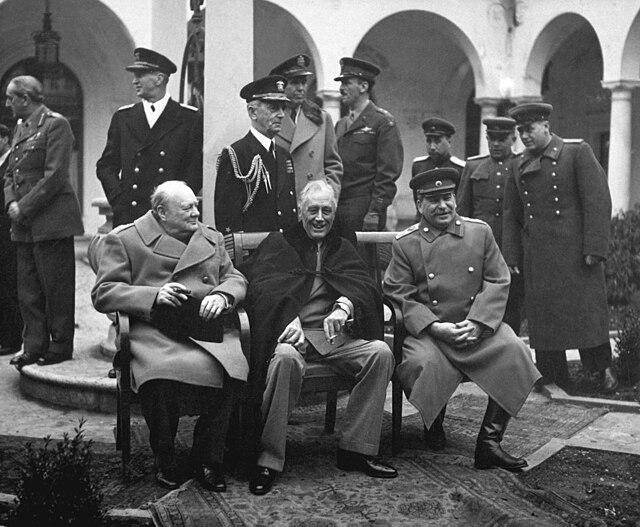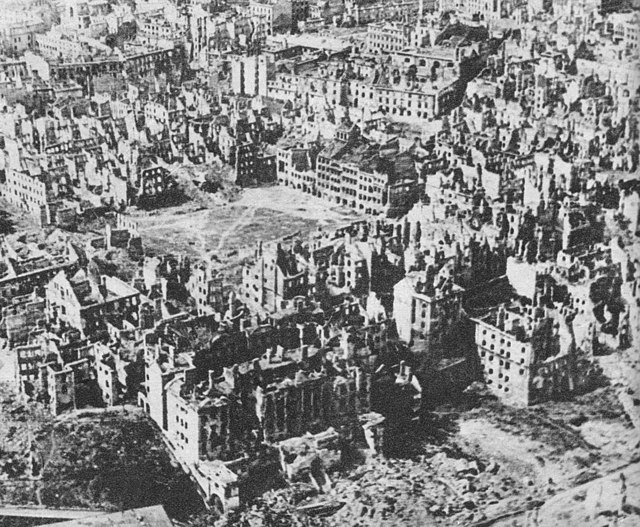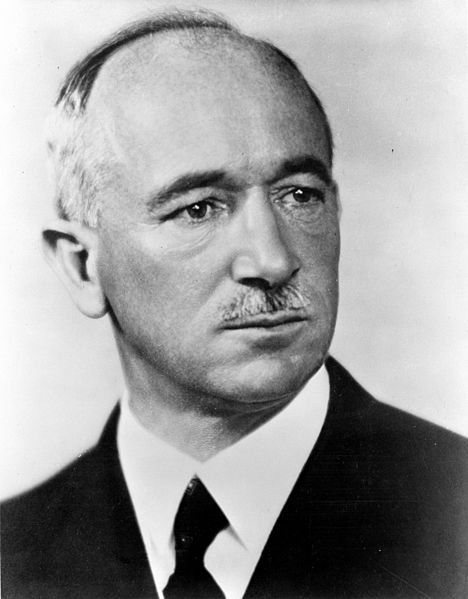Western betrayal is the view that the United Kingdom, France, and sometimes the United States failed to meet their legal, diplomatic, military, and moral obligations with respect to the Czechoslovak and Polish states during the prelude to and aftermath of World War II. It also sometimes refers to the treatment of other Central and Eastern European states at the time.
The "Big Three" at the Yalta Conference: Winston Churchill (UK), Franklin D. Roosevelt (USA), and Joseph Stalin (USSR)
During World War II 85% of buildings in Warsaw were destroyed by German troops.
The Munich Agreement was an agreement reached in Munich on 30 September 1938, by Nazi Germany, Great Britain, the French Republic, and Fascist Italy. The agreement provided for the German annexation of part of Czechoslovakia called the Sudetenland, where more than three million people, mainly ethnic Germans, lived. The pact is also known in some areas as the Munich Betrayal, because of a previous 1924 alliance agreement and a 1925 military pact between France and the Czechoslovak Republic.
From left to right: Neville Chamberlain, Édouard Daladier, Adolf Hitler, Benito Mussolini, and Galeazzo Ciano pictured before signing the Munich Agreement (1938)
Konrad Henlein, leader of the Sudeten German Party (SdP), a branch of the Nazi Party of Germany in Czechoslovakia
Edvard Beneš, president of Czechoslovakia and leader of the Czechoslovak government-in-exile
Czechoslovakia built a system of border fortifications from 1935 to 1938 as a defensive countermeasure against the rising threat of Nazi Germany.






